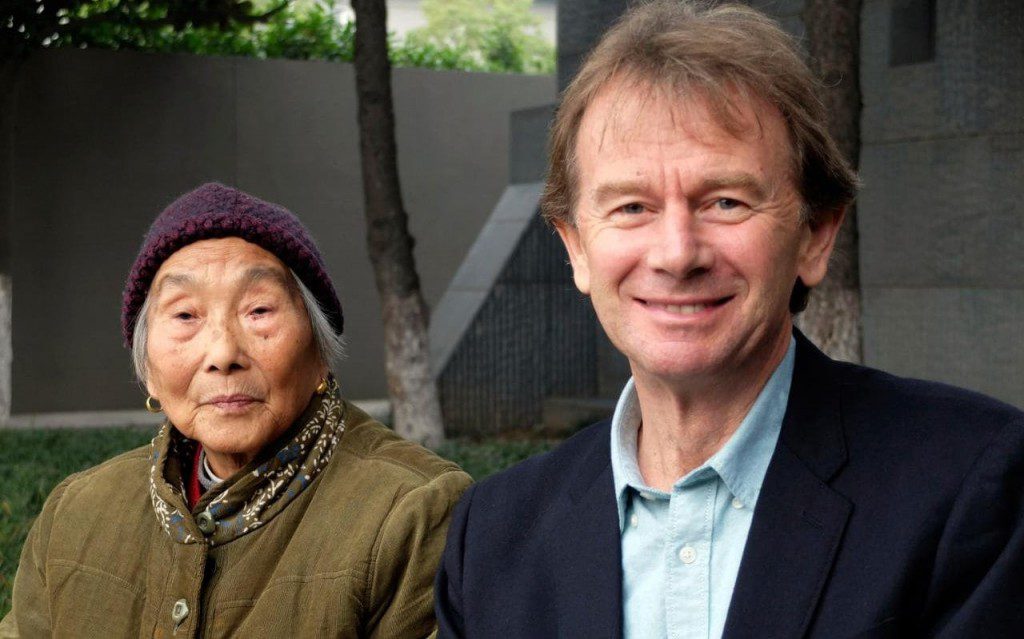This month I have the wonderful opportunity to share with you a review of The Story of China and an interview with the documentary’s narrator, Michael Wood. If you have not been watching the program as it has aired on PBS in recent weeks, you can still catch the finale this week (check listings) and of course there will be DVDs and streaming options available.
I highly recommend watching all of it; but history buffs interested in just one period or another can easily choose one of the show’s six episodes to watch alone.
I also highly recommend Wood’s previous series, The Story of India. If your interest is Buddhism, starting with its birthplace in The Story of India is ideal. But for now: China.
A country with 1.5 billion people, give or take, and over 4000 years of history deserves more than six hours and at times one feels the strain of history weighing heavy on this series. How does one cover it all? What is left out? What is glossed over? A simple answer to these last two questions is: a lot. But this is the nature of history and teaching or documentary film-making.

The beauty of The Story of China is that despite the gaps and glosses, even the historian is r by the human stories at the heart of the series. Again and again, Wood introduces history through the living relatives of those who have shaped it, often venturing to the very villages and cities, even venturing deep into the excavated mud to show the progressive building of a city’s walls, growing higher and higher with each disastrous flood.
My Buddhistdoor colleague Raymond Lam noted recently:
History has shown that during its unhappy periods of decline or division, China turns inwards, paralyzed when trying to deal with the world beyond its borders. In periods of confidence and ascendance, such as during the High Tang, the High Qing, or I daresay now in 2017, China is able to unite while radiating its influence across Eurasia as the civilization-state that history has shaped it to be.
In light of similar thoughts, my first question for Wood was about how the Chinese see themselves today. Do they worry about revolution? Do they see the U.S. and other nations hovering over them? Wood responded that, “The narrative that has bene given to the Chinese people over the last 50 years has been of a “century of humiliation” and it has been attacked, almost dismembered by aggressors from outside: colonial powers, unjust treaties, especially the Japanese.” He continued, “The Chinese feel that Communist party has rescued them from this. You’ll see it in the Nanjing museum, the labeling of all of the exhibits telling and retelling this story.”
Wood also emphasized that despite, or perhaps in virtue of their extensive history, there exists a very strong, “idea that they are a unitary civilization: Han culture, Han speech, Han script, all of these dating back to the 3rd century CE.”
Asked which one period of Chinese history most excited him, Wood initially listed three: 18th century China, the Tang Dynasty, and the Song. The Tang, in particular, he noted, gave us the mixture of Confucian and Daoist ideals with Buddhism. In our conversation, Wood recalled a saying of the period: “To be a humane person is to be a Confucian in one’s practical life, a Buddhist in spiritual life, and a Daoist in one’s private or mystical life.”
After a moment, though, he settled on the last of these as perhaps the most interesting of them all, saying that the Song represented a period of maturity in Chinese culture, a flowering of humanistic ideals. He recalled a book on taking care of one’s elders that was first published in the time – a book that is still in print! Laughing, Wood noted that the details of the book are just as applicable today as they would have been then: “Do not patronize the elderly, but surround them with the good things of their youth.”
In the episode on the Tang period, Wood covers the introduction of Christianity to China. I asked him to speculate a bit about why Christianity did not take hold in China, while Buddhism did. He had earlier mentioned that one of the great things about China is that it throws into relief so many of our basic assumptions, including monotheism. Such an idea wasn’t present in China and while the Western ideas were respected, a following never took hold.
On the other hand, “Buddhism is Eastern, and it conformed to the way that religion was generally done in Chinese culture,” Wood remarked. Nonetheless, Christianity remained in scattered pockets, as did Judaism; and Islam thrived and continues to thrive, especially in northwest China, along sites of the old Silk Route.
Today, as much as ever, the forces of unity find themselves in conflict with the religious and cultural diversity of the country. The view does seem to be outward, as Raymond Lam suggests, but an eye still must be on the rapid internal changes taking place as the nation steps into global superpower status.
Support independent coverage of Buddhism by joining a community of fellow learners/practitioners at Patreon.
‘Like’ American Buddhist Perspectives on facebook.












